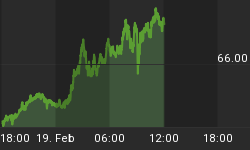The streaming war is getting more intense, people are cutting their cable cords in record numbers, and that means merger mania ...
Rival TV providers Dish and DirecTV are reported likely to merge as streaming competition grows.
Dish Network reported that its Sling TV service finished Q4 2019 with 2.59 million subscribers, having lost 94,000 subscribers from the prior quarter. In all, Dish lost a net total of 511,000 subscribers in 2019, compared to a loss of about 1.13 million in 2018.
But a merger looks messy, especially since DirecTV is currently owned by AT&T, which made the acquisition four years ago for $49 billion, or $67.1 billion with debt included.
DirecTV has also been struggling. It lost nearly 1.1 million subscribers in Q3 2019, bringing its total down to about 16.8 million. Because of that, investors have been pressuring AT&T to take action.
However, during AT&T’s 3rd quarter 2019 earnings call, AT&T put out the idea that DirecTV could be on the table for sale or a merger/partnership. The Wall Street Journal reported last September that AT&T was exploring a sale of DirecTV, which is worth $25 billion based on a five-times-earnings-before-taxes purchase multiple.
Currently, Hulu is officially the top live TV streaming service, overtaking Sling TV for the first time last quarter. Hulu + Live TV continues to grow, finishing last quarter with a record of 3.4 million subscribers. The next closest streaming bundle competitor is YouTube TV, with two million subscribers.
If the two companies end up merging, the single entity would steal the top spot among satellite providers, with a combined subscriber base (including Dish-owned Sling TV) of about 30 million.
Dish and DirecTV were barred from merging back in 2002 over concerns that it would eliminate competition. However, antitrust regulators could now approve the merger as the competition has gotten stronger and quite a few new players have emerged. In fact, the two are arguably getting crushed by the competition they might have eliminated in this fast-moving streaming war.
More than three million customers in the U.S. canceled their cable TV or satellite subscriptions in the last quarter of 2018, making that a total of 10 million since 2010.
Today, nearly every media company - from Apple, Comcast to Disney - is taking a stake in the TV streaming business.
Last November, Apple launched its paid, ad-free video portal for its own original movies and TV shows called Apple TV+, and so far, it’s cornered some 35 million subscribers.
Netflix, meanwhile, has more than 148 million subscribers globally, followed by Amazon with more than 100 million subscribers to its Prime service. Other streaming services such as Hulu are relatively small by comparison, but Hulu still has some 25 million subscribers in the U.S.
Disney announced that its new service has surpassed 28 million subscribers since it launched three months ago.
On this technology-meets-entertainment war frontline, the tables have turned and the biggest in the business are now fighting to stay that way.
By Josh Owens for Safehaven.com
More Top Reads From Safehaven.com:

















